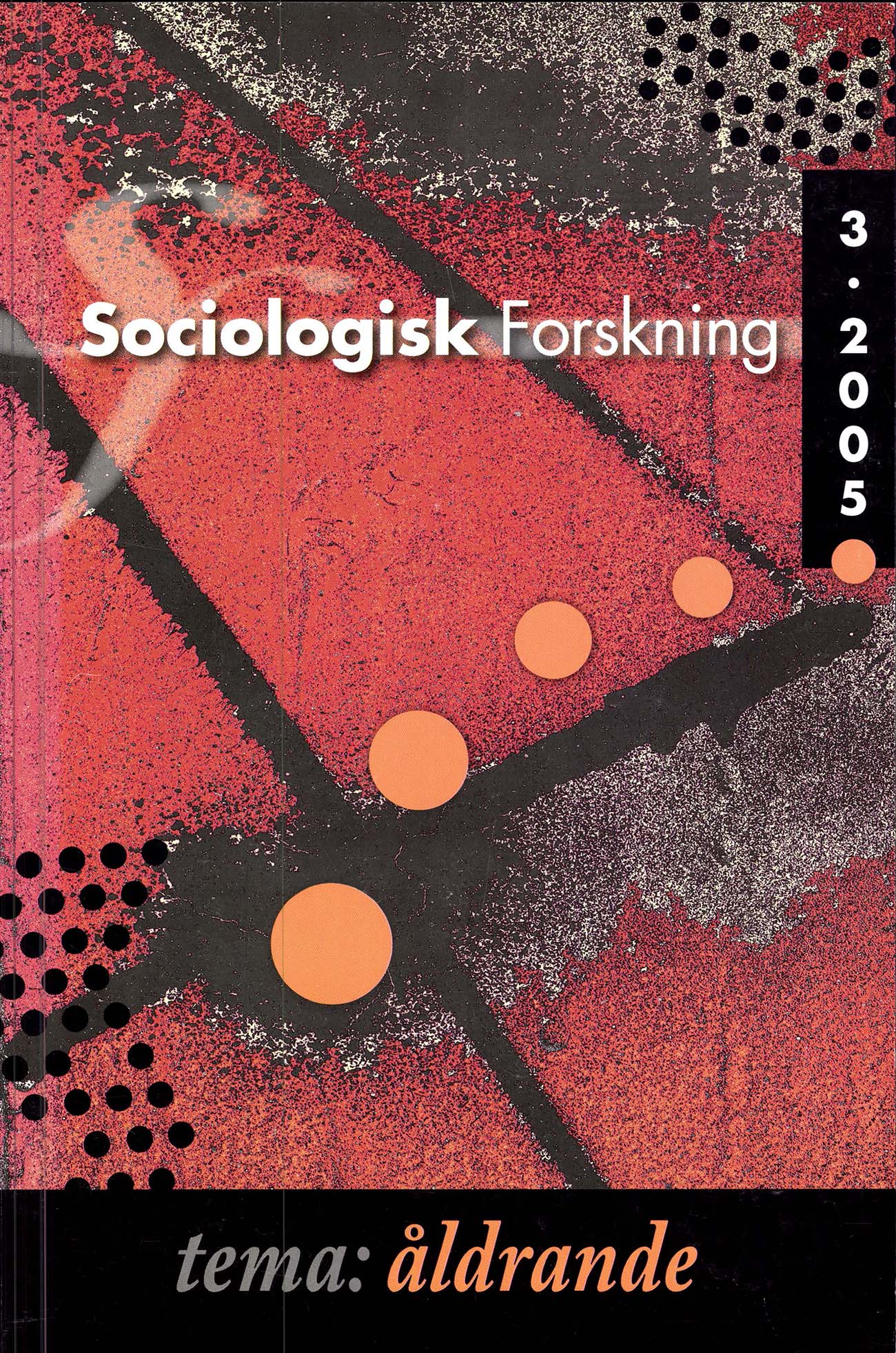Vilka vill jobba till 65? Synen på arbete och privatliv hos den äldre arbetskraften
DOI:
https://doi.org/10.37062/sf.42.19344Nyckelord:
retirement preferences, working hours preferences, push and pull mechanisms, adaptation, gender, SwedenAbstract
In this article I analyze how working conditions, work time, and attitudes towards working life and private life affect older middle-aged individuals’ preferences for shorter working hours or early retirement. The study is based upon a sample of 1050 individuals aged 55-64, in addition to the labour force survey. The findings indicate that there are gendered mechanisms influence individuals’ preferences. Women with tedious and/or heavy work tend to prefer retirement, while men with similar working conditions choose to work fewer hours. Men are sensitive to the attitudes of others and if they experience that they are not regarded as competent workers they are apt to decide to leave working life. Men who have to work for their income would prefer to exit the labour market, and part-time work for men seems to be a functional alternative to early exit. Good working conditions have a bearing for both women and men in regards to their preferences. Good working conditions works mainly through individuals’ attitudes towards work; positive attitudes towards work influence preferences for working longer and more hours. Individuals who wish more time for private life activities have a propensity to exit working life completely. The main mechanism in work is adaptation where individuals’ attitudes towards work and private life adapt to their preferences on how much and how long they want to remain in working life.
Downloads
Publicerad
Referera så här
Nummer
Sektion
Licens
Allt material i Sociologisk Forskning publiceras med omedelbar öppen tillgång (open access), under Creative Commons-licensen CC BY-NC-ND 4.0.
Allt innehåll i tidskriften är fritt tillgängligt utan kostnad och får för icke-kommersiella syften fritt läsas, laddas ned, kopieras, delas, skrivas ut och länkas. Innehållet får dock inte ändras. När innehållet används måste författare och källa anges. Upphovsrätten till innehållet tillhör respektive författare. Inga publiceringsavgifter tas ut.





